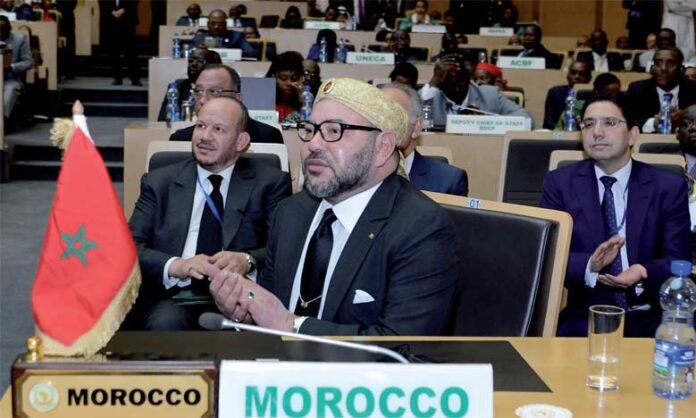In a compelling new article, Spanish writer Luis Portillo, known for his support of the Polisario Front’s thesis, sheds light on the most significant “blow” the Front has suffered in the Moroccan Sahara issue in 2024.
He highlights Panama’s decision to suspend its recognition of the so-called “Sahrawi Arab Democratic Republic,” a major shift after decades of recognizing this separatist entity since 1978. This change is not just a diplomatic shift but heralds a new phase in the international conflict over the Sahara.
Why is Panama’s decision a crushing blow to the Polisario?
For Portillo, this decision represents one of the biggest setbacks the Polisario has faced on the international stage. Given Latin America’s long-standing support for the Front, this change amounts to a direct hit to its diplomacy.
Does this shift signify a real change in the balance of power in Latin America? Can this decision be seen as the beginning of the decline of international support for the Polisario in the region?
In fact, this change reflects Morocco’s growing diplomatic and economic pressure in the region. Morocco’s diplomacy, which has always considered the Sahara issue a strategic national cause, has succeeded in expanding its economic and political alliances worldwide, including in Latin America.
Morocco’s Influence in Latin America: Are “Economic Deals” at Play?
In his article, Portillo refers to Morocco’s “maneuvers” aimed at weakening the Polisario’s position internationally. He argues that Morocco has leveraged significant economic investments as a tool to pressure Latin American countries, contributing to these diplomatic shifts.
However, are these “economic deals” the sole reason behind this change? Or are other factors, such as geopolitical pressures or internal changes in these countries, also influencing their positions?
Morocco’s investments in Latin America are beginning to show tangible results, raising questions about the effectiveness of these economic tools in persuading governments to alter their stance on the Sahara issue. Can Morocco build lasting alliances through these strategies? Will these transformations have a lasting impact?
Do These Changes Reflect Weakness in the Polisario?
Interestingly, while Portillo frequently criticizes Morocco, he implicitly acknowledges that the Polisario has failed to present itself as a credible political alternative. This failure extends beyond promoting the “right to self-determination” to maintaining international support.
Does this internal setback reflect a weakness in the Polisario’s political leadership? Or are other factors, such as declining international interest or increasing internal repression, contributing to this failure?
The Role of Spain and the “Pro-Morocco Lobby”: A Strategic Shift?
In the final part of his article, Portillo points to the influence of the “pro-Morocco lobby” within the Spanish political class and its role in steering Spanish policy in favor of Morocco.
Does this signify a strategic shift in Moroccan-Spanish relations? How has Morocco managed to handle these relations to its advantage when Spain was traditionally one of the Polisario’s main supporters?
Conclusion: A New Geopolitical Reality Favoring Morocco?
Despite Portillo’s ongoing criticisms of Morocco, it is undeniable that recent geopolitical and diplomatic changes appear to favor the Kingdom. Through significant investments and the expansion of its strategic alliances, Morocco is in a strong position to make tangible progress in its national cause.


